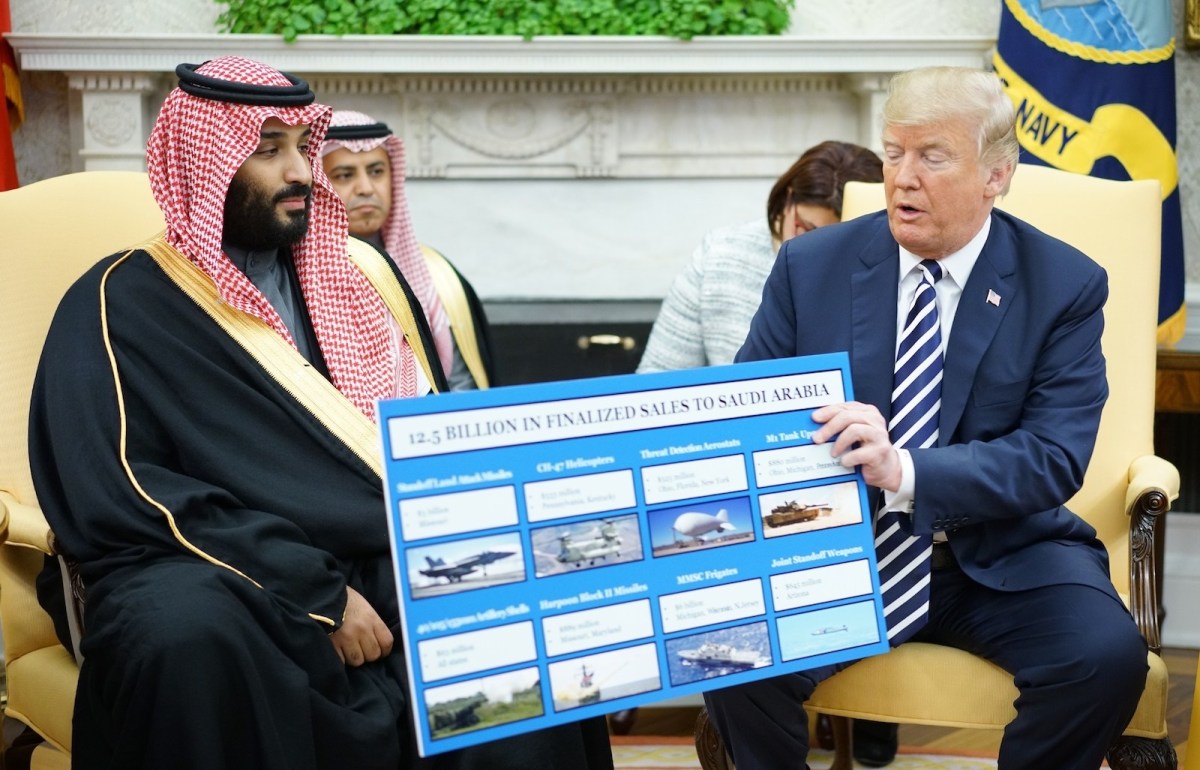[ad_1]
The new US administration under President Joe Biden has pushed Saudi Arabia aside in a clear effort to mollify Iran, hoping that Washington will succeed in engaging with the Islamic Republic and renegotiate the failed 2015 nuclear deal. This stands in stark contrast to the last administration, which leveled sanctions against Iran for its malign behavior and focused on strengthening ties with the Saudi kingdom, an important ally in the Middle East.
A former White House envoy to the Middle East, Jason Greenblatt, said Biden’s decision to distance the US from Saudi Arabia, implausibly over the killing of journalist Jamal Khashoggi, is dangerous to allies in the Middle East and serves to embolden Iran.
Like Biden, some Washington analysts, such as Aaron David Miller and Richard Sokolsky in a recent Washington Post article, believe Saudi Arabia is just a partner and not an ally, but they are mistaken. Greenblatt, who served for about three years in the Trump administration, has emphasized the importance of the Saudis as a US ally and rejected the notion that the relationship is nothing more than a partnership.
“It is really distressing to see how they are treating Saudi Arabia,†Greenblatt said of the Biden administration. “Their stability is important to all our allies in the region. During his campaign, Biden made it clear that he wants to make Saudi Arabia a pariah. That’s a very mistaken outlook.â€
According to Greenblatt, the Saudis, in particular Crown Prince Mohammad bin Salman (MBS), are indeed allies and share many crucial security concerns with the US. The most pressing of course is Iran.
Iran’s hegemonic ambitions and destabilization in the Middle East are no secret. Its proxies are active in three main arenas: Hezbollah in Lebanon and Syria, Hamas in Gaza, and the Houthis in Yemen. Iran has also worked tirelessly to build a land bridge across Iraq, Syria, and Lebanon to the Mediterranean – an effort that Israel has closely watched and, so far, thwarted.
As Greenblatt notes, the Iranian regime “is an enemy of the United States, Israel, and all of our allies in the Middle East. We can’t pretend this regime is interested in acting like a normal nation.†The new US administration today is engaging in what Greenblatt calls “ostrich diplomacy†for obvious reasons.
“The Biden administration is pretending these terrorists don’t exist, that they are not terrorists, that they are not Iran-funded. They are pretending these things don’t exist in the hopes that they don’t offend Iran. That’s not what is going to happen. They need to speak clearly and forcefully and recognize reality. They need to stand by their allies and friends,†he emphasized.
Greenblatt also believes that by not acknowledging and respecting Saudi Arabia, the US could create significant issues in the future. “Treating Saudi Arabia with anything other than great respect is only going to lead to problems in the Middle East and it is not going to lead to a proper and thorough deal with the regime in Iran,†he said.
Indeed, the Saudis could seek allies elsewhere with countries that may not necessarily share values with the US – Russia, for example. The jovial high-five-style handshake at the 2018 Group of Twenty summit between Russian President Vladimir Putin and MBS offers not-so-subtle insight into the growing depth of ties between the two countries.
Clearly, the Saudis are already hedging their bets and looking elsewhere in case they decide the US is not a reliable ally.
Another possibility to consider is that the Gulf states including Saudi Arabia could move closer to Iran, in what is known as the bandwagon effect, to gain its protection instead if they feel they cannot rely on allies to protect them. This might mean the US would lose a genuine ally in the Middle East and, as Greenblatt says, regional, perhaps global, security would suffer.
This would have huge repercussions on the Arab world, splintering regional alliances and driving an even stronger wedge into the Muslim sectarian conflict.
Greenblatt said he is “deeply concerned†over how the US is handling Iran and how Washington is handling Saudi Arabia, “one of our most important allies in the region.†He added that the US is “treating them with such disregard†and instead the Biden administration should be focusing on building and strengthening ties with the kingdom.
But it is not only the US that is trying to mollify Iran. Some European countries, including Britain, France and Germany, are just as guilty and have previously tried to circumvent US sanctions on Iran.
“These European nations are not at risk from Iran the way our Middle East allies are,†Greenblatt said. “Some of these European nations act purely out of naked economic self-interest, irrespective of the security concerns of the United States and our allies.â€
Indeed, in 2019, Belgium, Denmark, Finland, the Netherlands, Norway and Sweden all announced they would also attempt to circumvent the US sanctions. European nations are looking to appease Iran at nearly all costs. They demonstrate this by ignoring Iran’s non-compliance and by giving up the leverage created by economic sanctions against the regime.
While European nations do have the right to build economic ties with Iran, these must be viewed in the context of their eroding effect on Middle East security. Pushing Saudi Arabia aside and engaging Iran directly serves to undermine security relations in the Middle East.
The Biden administration should reconsider its efforts to marginalize Saudi Arabia and should instead focus on pressuring Iran through continued sanctions to fall into compliance, cease all hostilities in the Middle East and refrain from creating instability in the region.
[ad_2]
Source link













